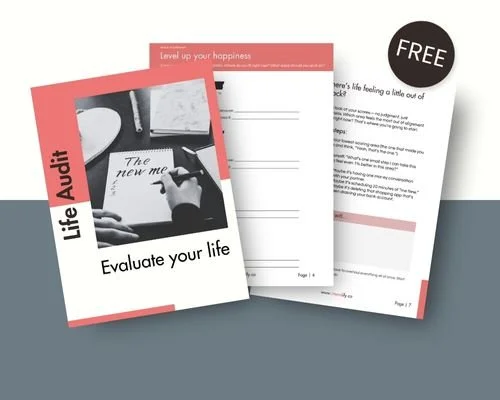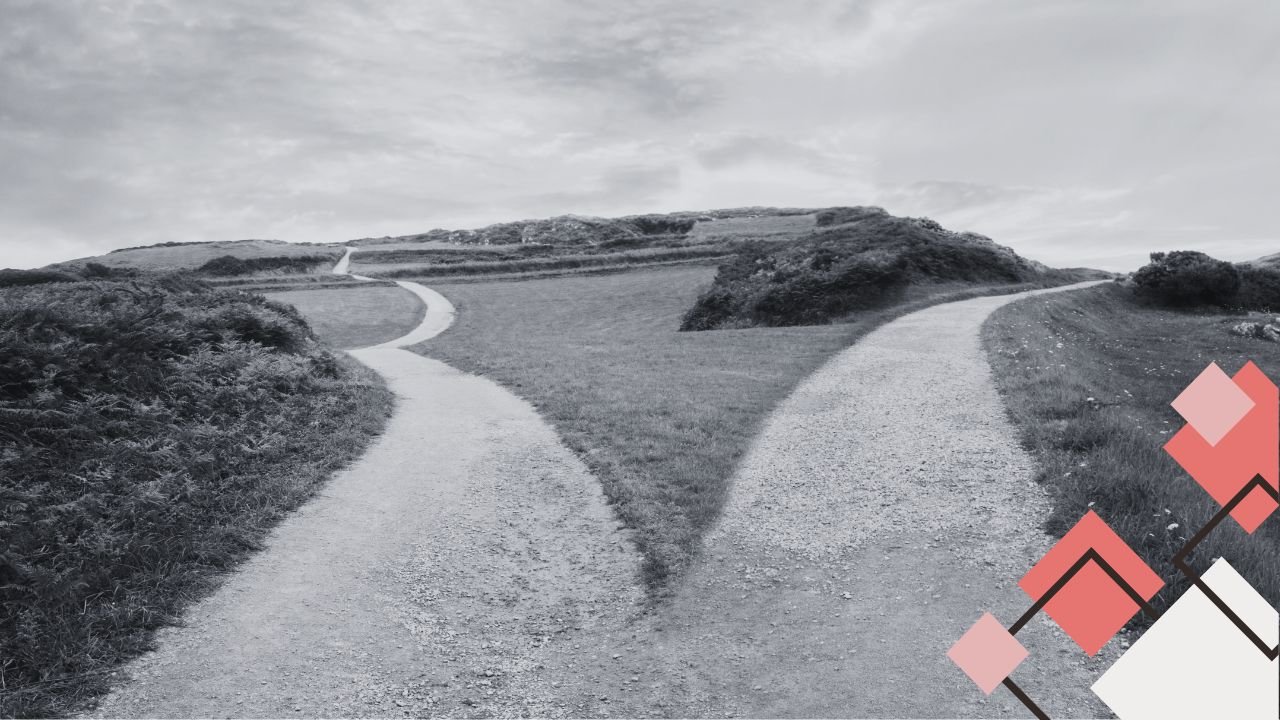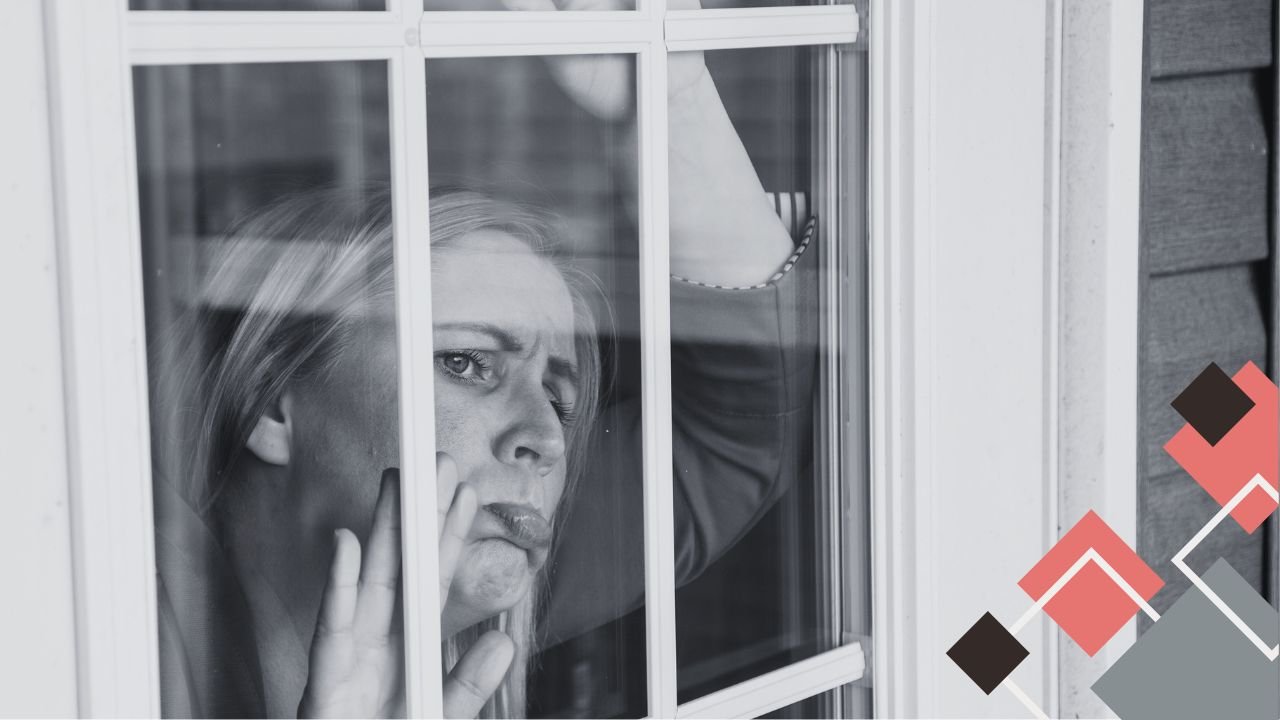12 Essential life areas to focus on if you want to create your dream life
This page is designed to help you see the main areas of life that shape how your life feels, so you can decide where your attention might be better spent.
This isn’t based on theory. It’s shaped by years of coaching sessions, real conversations, and the practical shifts that people tested until they found what actually works.
You’re doing your best to build a good life… but something still feels off.
You’ve been putting in the effort. Maybe you’ve made progress in your job or started focusing on health or decluttering your space, but there’s still a feeling like you’re stuck, disconnected, or spinning your wheels.
It might be because you’re focusing all your energy on one area of your life while quietly ignoring others that matter just as much.
Instead of trying to guess what’s wrong, let’s take a big-picture look so you can stop putting out fires and start building a life that actually feels like it’s yours.
Have you ever looked around and thought, “Is this really the life I’m meant to be living?”
Living intentionally doesn’t mean having all of your problems figured out or fixing everything that feels wrong all at once. It means making small, steady choices every day that add up to a life you actually want to wake up to each morning.
And to do that, it helps to have a map. That’s where the 12 life areas come in.
What are the 12 essential life areas to focus on when creating your dream life?
The 12 essential life areas are: Career and Business, Charity, Creativity, Education, Finances, Fun, Health, Home, Relationships, Self, Spirituality, and Travel and Culture. Focusing on each of these areas helps you design a life that feels balanced, meaningful, and true to who you are, so you’re not thriving in one part of life while neglecting another.
When you understand why these areas are important and how they work together, you can begin noticing where you’re doing well, where you’re struggling, and where you’re ready for something new. (And no, you don’t have to overhaul your whole life at once. Please don’t. We like sanity around here.)
The 12 essential life areas for intentional living are the key parts of your life that I believe shape how you feel day to day and in the long-term.
When you step back and look at them as a whole, you might start to see patterns that explain why you feel the way you do, whether you’re feeling stuck, restless, energized, fulfilled, or any of the other feelings that pass through you from one moment to the next.
You don’t need to fix all 12 life areas at once. That’s not realistic, and frankly, it’s a recipe for burnout. Instead, start by figuring out which areas are feeling neglected or out of balance right now.
Start here: Use the Life Audit to find out what needs your attention
This quick and powerful tool helps you rate each of the 12 life areas, reflect on what’s working and what isn’t, and identify what’s most in need of care right now. Once you’ve done that, scroll down and jump to the section that speaks to you most.
You might be thinking
-
Your career and/or business isn’t just about what pays the bills; it’s how you spend a huge portion of your time, energy, and talent. It shapes your sense of purpose, your financial stability, and often your identity. When this area feels misaligned, it’s like carrying a low-grade dissatisfaction that seeps into everything else.
Why this life area matters
It’s where most of your hours go. If you dislike how you spend those hours, burnout and frustration are inevitable.
It affects your confidence and self-worth. A career that drains you can leave you questioning your skills and value.
It influences your financial security. Work choices directly impact your ability to build stability and freedom.
It can either fuel or stifle your dreams. When aligned, your career supports the bigger life you want. When it’s not, it holds you back.
One client I worked with admitted she used to dread Sundays because Monday meant returning to a job she hated. She didn’t have the luxury to quit overnight, but we worked on identifying her transferable skills. Within a year, she had pivoted to a new field where she felt challenged and appreciated. “I don’t dread Mondays anymore,” she told me, “and that feels like winning the lottery.”
Quick wins
Do an energy audit at work: Track which tasks light you up vs. which drain you. This shows what kind of work you should lean toward.
Update your resumé and LinkedIn profile: Even if you’re not job hunting yet, this step gives you options and can help you build confidence.
Explore one new career idea: Listen to a podcast, research a role, or connect with someone in a field you’re curious about.
Tools that might help
Explore our Career and Business HUB to reflect, take action, and grab tools designed to help you build a career or business that supports your ideal lifestyle.
-
Contribution is about impact: how you use your time, energy, or resources to make life a little better for someone else. I’m not necessarily talking about making grand gestures or huge donations. It’s more about feeling connected to something bigger than yourself.
When this area is neglected, you might feel like your days are all about you and your problems. When you help someone else, even in small ways, you’ll find purpose, connection, and a sense of belonging to your community.
Why this life area matters
It gives your life purpose. Knowing you’ve helped someone, even in tiny ways, creates a sense of meaning.
It reminds you of perspective. Helping others often puts your own challenges in context and eases stress.
It builds connection and community. Contribution fosters relationships and a sense of belonging.
It energizes you. Far from draining, giving often fills you up with pride, joy, or motivation.
One woman I worked with felt she didn’t have time to “make a difference.” But she agreed to try one act of kindness: writing a thank-you card to a coworker. A week later, she told me that her coworker actually cried when reading it. That tiny effort reminded her how small actions can create a ripple. She turned it into a weekly habit, and it still fills her with the sense that she’s a good person.
Tools that might help
Explore our Charity HUB to reflect, take action, and grab tools designed to help you develop your charitable side and feed your soul.
-
When most people hear “creativity,” they think of painting, writing novels, or playing an instrument. But creativity isn’t limited to the arts, it’s any act of imagining, problem-solving, experimenting, or expressing yourself in a way that feels uniquely yours.
At its core, creativity is about turning ideas into something you can see, hear, touch, or experience. It might be doodling on scrap paper, reorganizing a cluttered shelf so it works better, testing a new recipe, or brainstorming a solution at work. Creativity is simply giving yourself permission to think differently and play with possibilities.
Why creativity matters
It fuels resilience. When life throws curveballs, creative thinking helps you adapt and find new solutions.
It brings joy and self-expression. Making or experimenting just for the sake of it can be deeply satisfying and a reminder that you’re more than your to-do list.
It strengthens other life areas. Creative energy often spills over into relationships, work, and even health. A new hobby might relieve stress, spark conversations, or lead to new opportunities.
It reconnects you with curiosity. Instead of just consuming, you start creating, and that shifts you from passive to engaged in your life.
A man I coached once said, “I’m not creative at all.” But as we talked, he told me about how he tinkered with his bike every weekend, trying out new setups, mixing old parts, and testing what worked better. That’s creativity. When he reframed it that way, he realized he had a creative streak all along; it just didn’t look like painting or poetry.
Quick wins
Redefine creativity for yourself: List three things you already do that involve imagination or problem-solving. (Yes, even cooking counts.)
Give yourself 10 minutes of creative play: Write, doodle, try a new angle on an old problem, whatever feels light and fun.
Collect sparks of inspiration: Keep a running note of colors, phrases, photos, or ideas that catch your attention. Let them feed your creative experiments.
Tools that might help
Explore our Creativity HUB to reflect, take action, and grab tools designed to help you develop your creative self and feed your soul.
-
Education doesn’t end when you graduate. It’s how you keep your mind alive and your world expanding. Learning can be formal (courses, certifications) or informal (books, podcasts, YouTube deep dives). When this area is ignored, life can feel flat, repetitive, or uninspiring.
Why this life area matters
It keeps your brain sharp. New skills and knowledge prevent stagnation and boost problem-solving.
It sparks curiosity and joy. Learning something new reminds you what it feels like to be excited again.
It opens doors. Education often leads to opportunities like career shifts, side projects, or meaningful conversations.
It strengthens confidence. Knowing you can figure things out makes you more resilient in every area of life.
A client of mine who was in his 50s once told me he hadn’t “learned anything new in years.” He felt stuck and uninspired. He decided to take a free online photography course “just for fun.” Within months, he was not only taking better photos but also reconnecting with his sense of play, and he even started a small side hustle.
Quick wins
Pick one subject you’re curious about: It doesn’t have to be practical. Let your curiosity lead.
Find a starter resource: Watch a YouTube video, borrow a book, or listen to a podcast.
Block 20 minutes this week: Give yourself space to explore and notice how it feels.
Tools that might help
Explore our Education HUB to reflect, take action, and grab tools designed to help you take charge of your education and lifelong learning.
-
Finances aren’t just about money in and money out; they’re about stability, freedom, and choice. When this area feels shaky, it can color every decision you make. You might say no to opportunities, feel guilty about spending, or live with a constant low-level anxiety that makes it hard to enjoy anything else.
Why this life area matters
It shapes your options. Whether you can move, travel, or take time off often comes down to your financial health.
It influences your stress levels. Money worries can impact your sleep, relationships, and even physical health.
It’s tied to independence. Strong finances give you the ability to rely less on others and make choices you actually want.
It supports your bigger dreams. Every goal, big or small, usually has a financial piece attached to it.
One client confessed to me that she was afraid to even check her credit card statement. In her head, the debt had become a monster. When she finally looked, it turned out to be smaller than she imagined. That moment shifted everything. She built a plan to pay it down and told me later, “The dread was worse than the debt.”
Quick wins
Do a no-shame check-in: Look at your bank account or credit card balance without judgment. Awareness is step one.
Track for three days: Write down every purchase. You’ll often spot surprises you can change quickly.
Make one micro-shift: Cancel a subscription you don’t use, transfer $10 to savings, or cook at home once more this week.
Tools that might help
Explore our Finances HUB to reflect, take action, and grab tools designed to help you take charge of your financial life.
-
Fun isn’t a luxury, it’s fuel. It’s the spark that reminds you life isn’t only about bills, deadlines, and responsibilities. When you cut out fun, everything starts to feel heavier, and even small tasks take more effort. And it doesn’t have to mean expensive vacations or big events; it can be tiny, everyday moments that make you laugh, smile, or feel light again.
Why this life area matters
It lowers stress. Playful moments help your body reset and your mind relax.
It connects you with others. Shared laughter and fun build bonds that go deeper than surface-level conversations.
It boosts creativity and problem-solving. When your brain is relaxed, it makes new connections and helps fresh ideas flow.
It helps you enjoy the life you’re working so hard to build. Fun is how you actually experience joy in the present, not just “someday.”
A mom in one of my workshops admitted she hadn’t done anything fun in months. Her life revolved around work and caregiving. She challenged herself to do one silly thing with her kids: a living-room dance party. She told me later it felt awkward at first, but by the end, everyone was laughing, and she realized how much she’d been missing that lightness in her life.
Quick wins
Add a 5-minute burst of joy: Dance, sing, watch a funny video, or do anything that makes you smile.
Make a “fun menu": Write down 10 small activities you enjoy (board games, music, baking). When you feel drained, pick one.
Give yourself permission to play: Block off 30 minutes this week where the only rule is: it doesn’t have to be productive.
Tools that might help
Explore our Fun HUB to reflect, take action, and grab tools designed to help you create more fun in your life.
-
Being healthy isn’t just about avoiding illness; it’s about having the energy, focus, and resilience to live the life you want. When your body or mind feels out of sync, everything else becomes harder. You might push through tiredness, tension, or anxiety, but deep down you know you can’t keep going like this.
Why this life area matters
It fuels every other area. Without energy and focus, even exciting goals feel impossible.
It affects your mood and relationships. Stress, poor sleep, or exhaustion often spill over into how you show up with others.
It’s your long-term foundation. Daily choices shape not just how you feel today, but how you’ll feel 10 or 20 years from now.
It reminds you that self-care is non-negotiable. Health is not optional; it’s the base everything else stands on.
A client once told me she was used to running on five hours of sleep and endless caffeine. She brushed off the headaches and irritability as “normal.” But when she started protecting her bedtime, just one small change, she was shocked by how much calmer and more patient she felt with her family.
Quick wins
Add before you subtract: Drink more water, stretch for 2 minutes, or add a piece of fruit. Start by supporting your body, not depriving it.
Create a sleep boundary: Pick one rule (like no screens after 9 p.m.) and test it for a week.
Notice your biggest energy leak: Is it stress, sugar, or overcommitment? Naming it is the first step toward changing it.
Tools that might help
Explore our Health HUB to reflect, take action, and grab tools designed to help you take charge of your physical and mental health.
-
Your home should restore you, not wear you down. It’s more than four walls; it’s the systems, routines, and relationships that shape how you feel in your own space. When your home life feels out of control, it steals energy you could be using elsewhere.
Why this life area matters
It impacts your mental state. A cluttered or tense home often leads to a cluttered mind.
It affects your relationships. How your home functions influences harmony (or conflict) with the people you live with.
It determines your energy flow. Spaces that support you help you recharge; spaces that drain you leave you exhausted.
It shapes your daily habits. A well-functioning home makes it easier to cook, rest, exercise, or focus.
The mother/wife of a family I worked with felt constantly overwhelmed by household chores. Both parents admitted they were fighting almost daily about “who does what.” We set up a shared calendar and divided tasks by preference instead of “fairness”. The shift was small but powerful. Arguments dropped, and both felt lighter at home.
Quick wins
Reset one small space: Choose one area (a counter, your nightstand) and clear it completely.
Name the hidden system: Every home already has “systems” (even if it’s “argue about dishes nightly”). Naming them makes it easier to improve them.
Schedule a 15-minute family check-in: Ask: What’s working here? What’s not? What would make things easier for everyone?
Tools that might help
Explore our Home HUB to reflect, take action, and grab tools designed to help you take charge of your home life so being there is your favorite place to be.
-
Relationships shape so much of our happiness. They can fill us with energy, or quietly drain us until we’re running on empty. This life area covers every kind of connection, family, friends, partners, colleagues, and the way they make you feel.
When relationships are strained, unbalanced, or missing altogether, it creates ripple effects in your health, your confidence, and even your sense of safety.
Why this life area matters
They’re your support system. Strong relationships help you weather stress and celebrate joy.
They influence your self-image. The people you surround yourself with often mirror how you see yourself.
They affect your energy. Some people lift you up; others leave you exhausted.
They teach you boundaries. Healthy relationships thrive on communication and respect, not self-sacrifice.
A client once told me she dreaded phone calls from her sister because they always ended in guilt or arguments. We practiced a simple boundary script. The next call, she calmly said, “I love you, but I’m not able to talk about this right now.” She told me it felt terrifying, but afterwards she said, “For the first time, I hung up without crying.” That one step changed the entire tone of their relationship.
Quick wins
List your energizers vs. drainers: Notice who leaves you feeling lighter and who leaves you tense.
Reach out with intention: Send a short message to someone who makes you smile. Making a connection doesn’t have to be long and involved to matter.
Practice one boundary: Say no gently, but firmly once this week. Boundaries build trust, not distance.
Tools that might help
Explore our Relationships HUB to reflect, take action, and grab tools designed to help you build and maintain healthy relationships with family, friends, and other important people.
-
The relationship you have with yourself sets the tone for everything else in your life. When you consistently ignore your own needs, you lose touch with who you are and what makes you feel whole. Over time, that neglect shows up as exhaustion, resentment, or feeling invisible in your own story.
Self-care and growth aren’t indulgences. They’re how you maintain your capacity to live intentionally, make aligned choices, and keep growing into the person you want to be.
Why this life area matters
It’s your foundation. If you’re running on empty, you can’t show up fully for anyone else.
It fuels growth. Investing in yourself builds confidence, skills, and clarity about what you want.
It prevents burnout. Regular self-care keeps you from crashing when life gets overwhelming.
It anchors your identity. Spending time with yourself reminds you of your values, preferences, and voice.
A client once admitted to me, “I don’t even know what I like anymore. My whole life has been about work and family.” We carved out one hour a week just for her (no multitasking and no guilt). She started journaling, then picked up an old hobby she used to enjoy doing. Within a month, she said, “I feel like I’m getting myself back.”
Quick wins
Ask yourself daily: What do I need? Pause and answer honestly, even if the answer feels selfish.
Make a “me list”: Write down 10 activities that make you feel more like yourself. Do one this week.
Protect one boundary: Say no to one thing that drains you and use that time for yourself instead.
Tools that might help
Explore our Self HUB to reflect, take action, and grab tools designed to help you take care of yourself and grow as a person.
-
Spirituality isn’t just about religion. It’s about feeling grounded, connected, and guided by something bigger than the daily grind. For some people, that means faith; for others, it’s values, nature, rituals, or practices that bring inner peace.
When this area is neglected, life can feel hollow, even when everything looks “fine” on paper. You might feel unmoored, restless, or like you’ve lost your sense of direction.
Why this life area matters
It provides meaning. Spirituality helps you see the bigger picture and find purpose in daily life.
It creates calm. Practices like prayer, meditation, or reflection lower stress and bring inner peace.
It guides choices.Values-based living makes decisions clearer and more aligned.
It strengthens resilience. When life gets hard, spiritual grounding helps you keep perspective and hope.
One client told me she didn’t “do spirituality” anymore, but she missed the rituals she used to practice. We explored alternatives: morning walks in nature, journaling at sunset, and a gratitude ritual before bed. She came back weeks later saying, “I didn’t realize how much I needed that sense of connection.”
Quick wins
Reflect on what gives you meaning: Write down three experiences that left you feeling deeply alive or connected.
Add one grounding ritual: It could be lighting a candle, sitting in silence, or practicing gratitude.
Connect with awe: Watch the stars, visit a quiet place, or listen to music that moves you.
Tools that might help
Explore our Spirituality HUB to reflect, take action, and grab tools designed to help you explore and develop a life that feels grounded and connected to something bigger.
-
Travel and culture aren’t only about boarding a plane; they’re about expanding your perspective and reconnecting with your curiosity. Exploring new places, ideas, foods, and traditions gives your brain the variety it craves. When this area is ignored, life can feel repetitive, uninspired, and small.
Why this life area matters
It breaks up routine. New experiences refresh your perspective and re-energize you.
It teaches empathy. Immersing yourself in different cultures helps you understand and appreciate others.
It sparks inspiration. Fresh sights, sounds, and flavors feed creativity and motivation.
It reminds you there’s more out there. Seeing life beyond your own circle helps you dream bigger.
One client complained that she was stuck in a rut (work, home, repeat). She didn’t have the budget for big trips, so we focused on small cultural adventures. She started visiting international markets, trying new recipes, and attending local cultural festivals. “I feel like my world just got bigger without leaving my city,” she told me.
Quick wins
Plan a “micro-adventure”: Explore a new neighborhood, museum, or cultural event near you.
Try a cultural swap: Cook a recipe from another country or listen to music in a language you don’t speak.
Shift your routine slightly: Even walking a different route or chatting with someone new can spark a new perspective.
Tools that might help
Explore our Travel and Culture HUB to reflect, take action, and grab tools designed to help you explore everything the world has to offer, your way.
Share this guide on Pinterest.
Start by noticing which life areas feel out of balance, take one small action, and give yourself credit for every shift you make. The truth is, most people underestimate how much power they have to reshape their lives. But when you know where your energy is leaking and where it’s ready to grow, you can start living in a way that feels aligned, intentional, and doable.
FAQ - Questions my clients ask
-
No. That’s overwhelming. Start with one or two that stand out. Progress in one often sparks momentum in others.
-
That’s common. Use the Life Audit to sort them. Focus on the one that feels either most urgent or most energizing.
-
You’re not failing, you’re just noticing. Awareness is progress. The goal isn’t perfection, it’s one step at a time.
-
That’s okay. These 12 areas are a guide, not a checklist. Keep what resonates, leave the rest.
-
Often right away. Even one small shift can change how you feel about your day. The deeper, lasting change comes from consistency.













Many people reach a point where life looks fine on the outside but feels off on the inside. This post helps you slow down, notice what isn’t working, and explore what a dream life could mean for you today, without pressure or having to make big decisions.